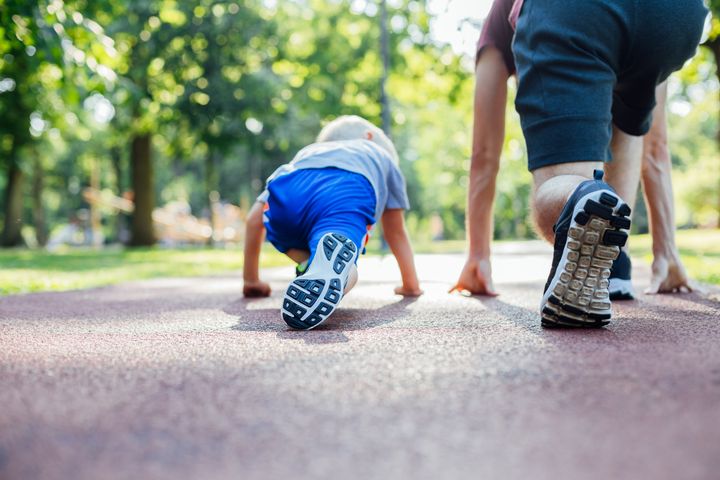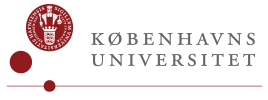Debunked: Children aren’t quicker at picking up new motor skills than adults
12.11.2024 14:28:38 CET | Københavns Universitet | Press release
Contrary to popular belief, children aren’t better at learning new skills than adults. Indeed, young adults seem to learn faster than kids – but also tend to forget more quickly. Here, better sleep seems to advantage children. This is the conclusion of a new study from the University of Copenhagen.

It’s widely believed that children learn new motor skills faster than adults, whether it’s mastering slopes or skateparks, learning new languages, doing cartwheels or picking up new dance moves from TikTok.
“There’s an assumption in popular science literature and various textbooks that children in a certain age range – from roughly the age of eight until puberty – are better at learning new skills than adults. This is often described as a ‘golden age for motor skills learning’. But there’s no actual physiological basis for this so-called golden age,” says Jesper Lundbye-Jensen, associate professor at the University of Copenhagen’s Department of Nutrition, Exercise and Sports and head of the section ‘Movement & Neuroscience.
The popular notion of a pre-pubescent motor learning peak prompted the researchers to investigate how age-related differences in our central nervous system affect motor skill learning. Their findings are now published in Developmental Science.
In the study, the researchers tested the motor learning abilities of 132 participants from four age groups: 8-10 years, 12-14 years, 16-18 years, and 20-30 years. In a lab setting, participants practiced moving a cursor on a computer screen with fast and precise finger movements.
Older participants learned faster
Participant performance was measured immediately after being introduced to the task (as a baseline), during the training session, and again 24 hours later.
During the training session itself, both the 16-18-year-olds and 20-30-year-olds improved their skills significantly more than the 8-10-year-olds.
“So, it appears that both teenagers and younger adults are better equipped to quickly acquire new skills compared to children, who showed smaller and slower improvements. At least when it comes to short-term learning and motor skills which this study investigated” explains Mikkel Malling Beck, the research article’s lead author and a former PhD student at the Department of Nutrition, Exercise and Sports who now works as a researcher at the Danish Research Centre for Magnetic Resonance at Hvidovre Hospital.
While the researchers cannot pinpoint the exact reasons for why the adults learn faster, they have a few theories.
“The results demonstrate that the older the participants are, the more skillful they become during the early stages of training. This suggests that they get more out of the task introduction. We suspect that cognitive development and an increased ability to process information play a role – meaning adults may have more experience receiving instructions and translating them into action,” says Jesper Lundbye-Jensen, adding:
“The difference may also be because the fully developed nervous system of an adult provides better structural conditions for learning. In other words, after many years of schooling, adults may be more experienced learners and thereby more efficient at learning new things.”
Children benefit more from sleep
The picture changes when it comes to retention:
“When we look at what happens from the end of training until the participants return the next day, the dynamic reverses. While the youngest participants actually improve overnight, adults lose some of their ability to perform. This means the youngest ones are better at consolidating and reinforcing their memory after they’ve practiced,” says Mikkel Malling Beck.
According to the researchers, this suggests that sleep benefits children’s learning and memory more. But other factors could also be at play. For example, older children and adults typically sleep less and have more “competing” activities throughout the day. Memory-consolidation processes in the nervous system continue for hours after the training ends.
“When a math class ends, the brain keeps working on what was taught, and in doing so, reinforces memory. Sleep is known to aid consolidation. But engaging in other activities in the hours after –especially those that involve learning – can interfere with memory processes and the consolidation of what was just learned,” explains Jesper Lundbye-Jensen.
Potential applications for professionals
While the overall learning outcome doesn’t vary drastically across age groups, the study does show that the learning process differs significantly depending on age, with underlying mechanisms influenced by the maturity of one’s central nervous system.
According to the researchers, the results could be useful in teaching and training fields that involve skill and movement, such as sports and music. Jesper Lundbye-Jensen points out that the results are relevant in other areas as well:
“For anyone aiming to improve their skills, it’s crucial to structure training so that each individual gets the most out of their time. This is also true for people undergoing rehabilitation to regain functional ability. We hope that this new understanding of age-related differences and post-training processes will inspire physiotherapists, occupational therapists, and other professionals when designing training protocols.”
ABOUT THE STUDY
- The main study included 132 participants: children, teenagers, and adults, divided into four age groups (8-10 years, 12-14 years, 16-18 years, and 20-30 years).
- The motor task practiced by participants was specifically designed for the study to ensure that it was novel for all participants.
- Baseline performance was measured immediately after introduction of the task. Participants then trained for 30 minutes, followed by a short break and another skills test. After 24 hours, participants returned to the lab for a final test.
- To account for the initially better performance and greater improvements among adults compared to the youngest children, the researchers conducted control experiments making the task more challenging for adults to match an 8-10-year-old’s level. Even with this adjustment, adults showed more improvement within the training session, while the children’s memory benefited more from the hours following the training, including sleep.
- The study only investigated motor skill learning and therefore cannot draw conclusions about other types of learning.
- The study is a short-term study and the results do not indicate whether similar age-related patterns would be reflected in long-term effects.
- The scientific article about the study has been published in the journal Developmental Science. The researchers behind the study are: Mikkel Malling Beck, Frederikke Toft Kristensen, Gitte Abrahamsen, Meaghan Elizabeth Spedden and Jesper Lundbye-Jensen from the Department of Nutrition, Exercise and Sports and Mark Schram Christensen from the Department of Psychology, University of Copenhagen.
Keywords
Contacts
Jesper Lundbye-Jensen
Associate Professor, PhD, Section Head ’Movement & Neuroscience’
Department of Nutrition, Exercise and Sports
University of Copenhagen
jlundbye@nexs.ku.dk
+45 35 32 73 30 / +45 29 61 19 53
Mikkel Malling Beck
Postdoc
Danish Research Centre for Magnetic Resonance
Hvidovre Hospital
mikkelmb@drcmr.dk
+45 21 76 56 72
Maria Hornbek
Journalist
Faculty of Science
University of Copenhagen
maho@science.ku.dk
+45 22 95 42 83
Links
ABOUT THE FACULTY OF SCIENCE
The Faculty of Science at the University of Copenhagen – or SCIENCE – is Denmark's largest science research and education institution.
The Faculty's most important task is to contribute to solving the major challenges facing the rapidly changing world with increased pressure on, among other things, natural resources and significant climate change, both nationally and globally.
Subscribe to releases from Københavns Universitet
Subscribe to all the latest releases from Københavns Universitet by registering your e-mail address below. You can unsubscribe at any time.
Latest releases from Københavns Universitet
Algoritmer afslører nye sider af det moderne gennembruds litteratur3.2.2026 13:16:47 CET | Pressemeddelelse
Forskere fra Københavns Universitet har digitaliseret 850 romaner fra det moderne gennembrud (1870-1900) og analyseret dem ved hjælp af algoritmer og AI. De kan nu vise, at perioden gemmer på en række oversete værker, der behandler temaer som køn og religion på overraskende måder.
Ny forskning: Styrket tidlig indsats giver markant færre ordblinde elever2.2.2026 09:50:41 CET | Pressemeddelelse
Et nyt undervisningsprogram målrettet elever i 1. klasse med øget risiko for ordblindhed har stor positiv effekt, viser en ny undersøgelse ved Center for Læseforskning på Københavns Universitet. I 3. klasse var andelen af ordblinde betragteligt lavere blandt de elever, der havde deltaget i det nye undervisningsprogram sammenlignet med eleverne i kontrolgruppen.
Vores tvivl på egne valg skyldes forskellige mekanismer30.1.2026 05:00:00 CET | Pressemeddelelse
Vi mennesker kan tvivle på os selv – også når vi præsterer bedre eller lige så godt som andre. Ny forskning viser, at tvivlen opstår på forskellig vis, blandt andet afhængigt af, om man er kvinde eller mand, og om man har tilbøjelighed til angst eller ej.
Lavsbundsjorde skal ikke stå under vand for at give størst klimagevinst29.1.2026 08:51:59 CET | Pressemeddelelse
Stik imod forventningen skal lavbundsjorde ikke oversvømmes helt for at give den største klimagevinst. Vandspejlet skal derimod være under jordoverfladen og ligge stabilt, viser et nyt studie fra Københavns Universitet. Drivhusgassen metan og mikroorganismer i jorden er en game changer.
Frygt for karrieren driver – og vælter – brutale regimer20.1.2026 20:30:00 CET | Pressemeddelelse
Ny forskning viser, at ambitioner og angst kan forvandle ’almindelige mænd’ til et regimes hensynsløse håndlangere – eller dets omvæltere. Det er nemlig karrierepres – ikke ideologi – der får militærofficerer til at beskytte eller vælte diktatorer.
In our pressroom you can read all our latest releases, find our press contacts, images, documents and other relevant information about us.
Visit our pressroom